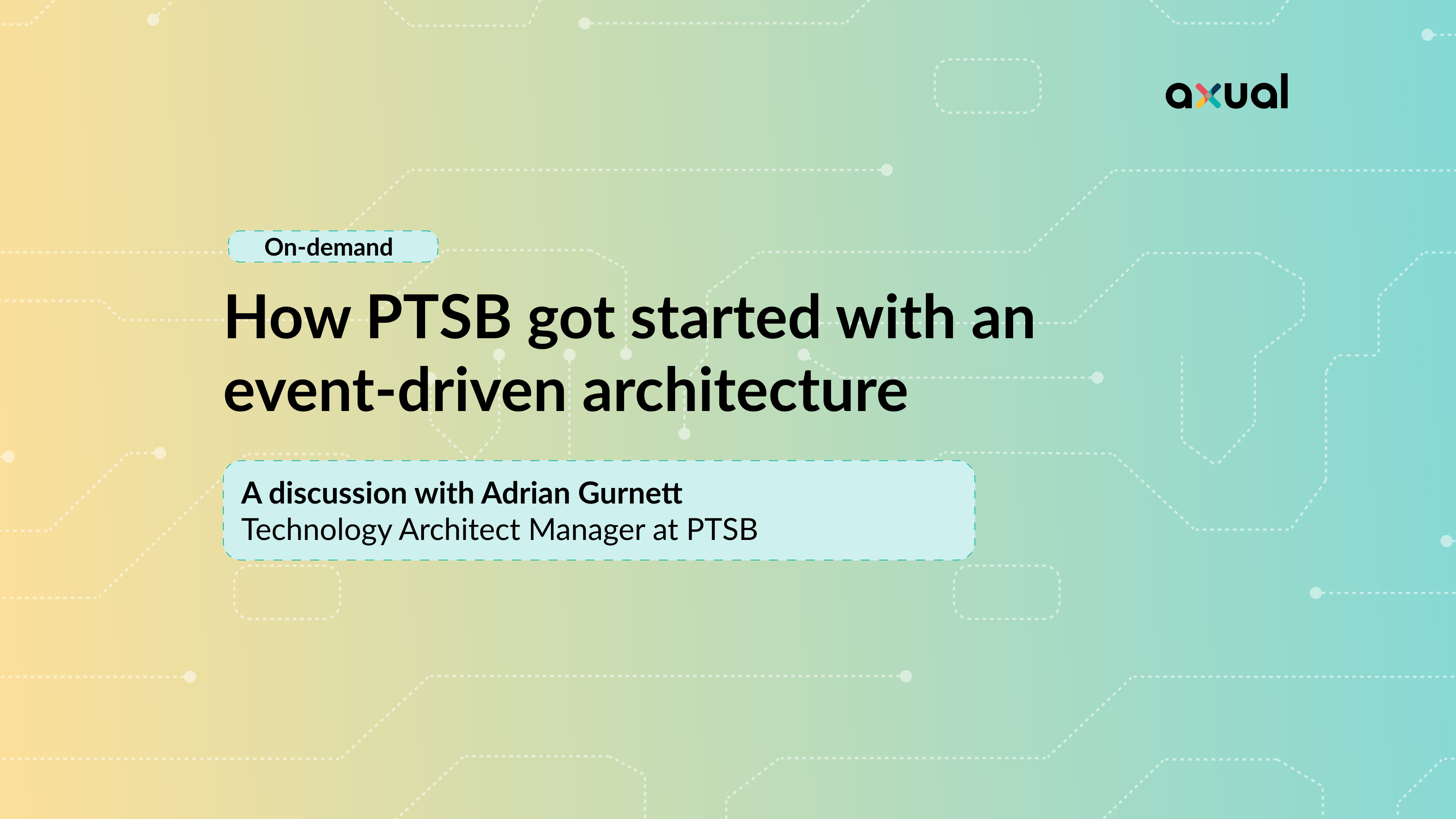On-Demand Webinars
Your one-stop destination for all the resources you need to kickstart your Kafka journey.

View all our Kafka webinars on-demand

Hear about PTSB's journey, from their successful mainframe offloading proof of concept to launching a full payments engine in just 7 months.

The power of real-time data Join us as we dive into how PostNL leverages Apache Kafka to track millions of parcels in real-time, powering notifications and ensuring seamless customer experiences. In this session, we’ll break down the architecture, key strategies, and practical takeaways from PostNL's journey with event streaming. Key take aways: Unlock business value with real-time data: we will discuss different data integration patterns and explore how real-time data can accelerate business growth. How PostNL scaled Kafka through self-service, governance and security: discover how PostNL created a scalable event-driven architecture to track millions of parcels in real-time. See Axual’s platform in action: experience a live demo of Axual's event streaming platform, showcasing practical solutions and best practices.
.jpg)
See Axual’s platform in action: experience a live demo of Axual's event streaming platform, showcasing practical solutions and best practices.
.jpg)
Discover how PostNL created a scalable event-driven architecture to track millions of parcels in real-time.
.jpg)
Unlock business value with real-time data: we will discuss different data integration patterns and explore how real-time data can accelerate business growth.

Event streaming empowers companies to service their customers faster and better and accelerate their business processes. It is no surprise to see that streaming engines such as Kafka gained popularity. In this talk, we will go through the 5 stages of event-driven architecture and share some insights into our journey at scaling Kafka at Rabobank. How can you make the adoption of Kafka a success in your organization? And, how can you scale data governance and security to stay in control?
